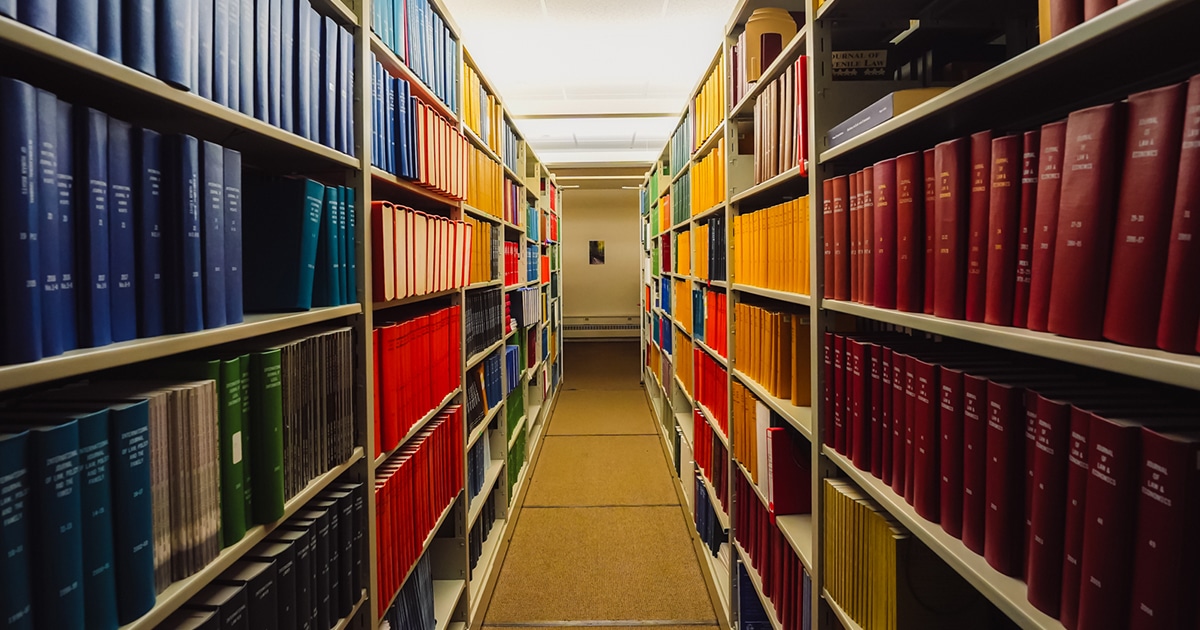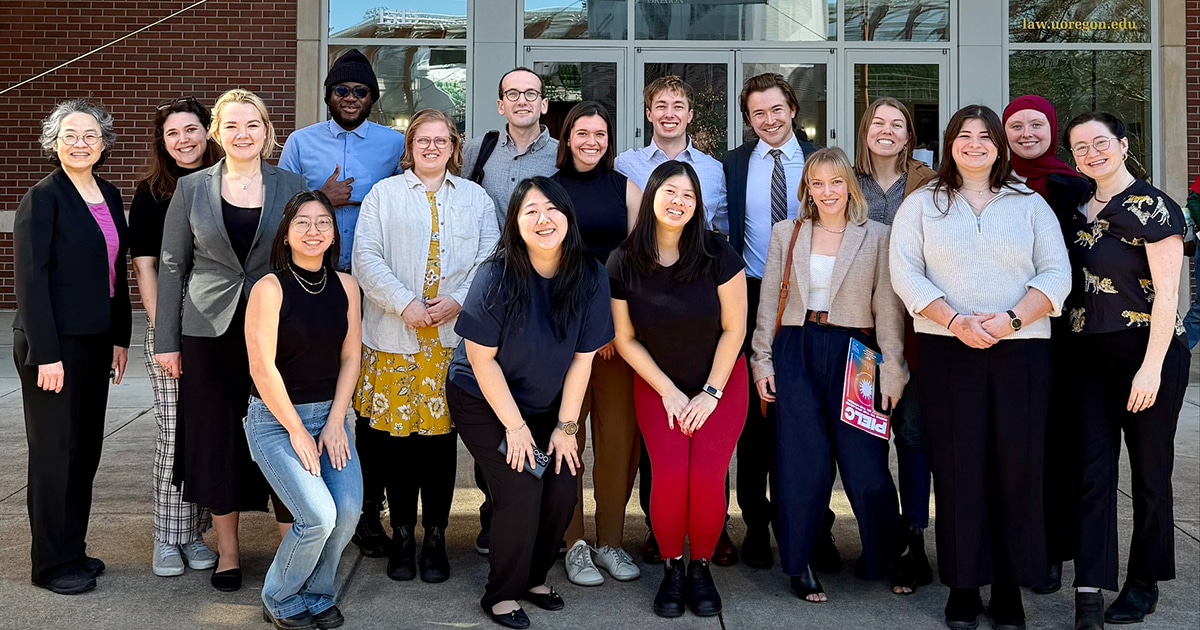Faculty and Staff in the News – March 2025
Below is a selection of recent news highlights featuring members of Vermont Law and Graduate School’s faculty and staff. Blood, Body Parts and Bacteria Pollute Wastewater from Meatpacking Plants, New […]

Launched in 2019, the Environmental Justice Clinic is open to Vermont Law and Graduate School Master’s and JD students.
At the Environmental Justice Clinic, students represent and partner with disenfranchised communities fighting racial and economic disparities in the distribution of polluting sources, while also fighting for a say in decisions affecting their future.
The Environmental Justice Clinic (EJC) at VLGS is one of just a few law school clinics in the United States specifically devoted to environmental justice – an interdisciplinary practice at the intersection of civil rights and the environment. Students are involved in real-life cases. They work in partnership with low-income communities and communities of color to address racial disparities and ensure that residents can fully participate in decisions affecting their health and welfare. They gain experience working on law and policy issues at the nexus of environment, race, and policy, while also learning essential community lawyering skills.

The EJC strives to further the environmental justice movement by representing and partnering with environmentally overburdened communities of color and low-income communities. The clinic seeks to enforce civil rights in the environmental context while providing technical assistance and sharing resources to develop and implement other legal strategies. To that end, the clinic trains students to be ethical and effective advocates for their clients while adhering to the Principles of Environmental Justice.
The clinic’s docket focuses on representing overburdened communities who are fighting for a voice while facing racial and economic disparities in the distribution of polluting sources. Students are expected to produce work consistent with that of the finest attorneys and consultants as they work with clients and partners across the country, addressing issues such as:
Students intervened on behalf of the local community, Sierra Club and Center for Biological Diversity in an appeals case over whether a refinery in St. Croix Virgin Islands can reopen. The refinery was shuttered in 2011, and when a new owner attempted to restart the refinery in 2021, oil rained from the sky twice in five months on the local community. Students intervened to ask the court to require special permits under the Clean Air Act, which would require equipment at the refinery be upgraded to the “best available technology” to ensure safe operation and minimize toxic pollution.
A student team is working on behalf of residents in the Maple/King neighborhood of Burlington, Vermont—the most diverse in the state. Students submitted an Amicus Brief to the Federal District Court highlighting how the community’s wishes have been ignored, and advocating for an alternative route, that would divert traffic away from residential communities.
The clinic frequently seeks to protect environmental justice communities using Title VI of the 1964 Civil Rights Act. Title VI prohibits recipients of federal monies (states, grantees, etc.) from discriminating based on race, color or national origin. In several past and current clinic cases, students have investigated, filed complaints, and sued state environmental agencies and the US Environmental Protection Agency over discriminatory policies and conduct that resulted in disproportionate human health and environmental impacts on minority and low-income populations.
Students also participate in a seminar that focuses on community-based lawyering, discussing the theoretical, practical, and ethical dimensions of a lawyer’s role in representing and working with disenfranchised communities. Topics include client interviewing and counseling; case theory; settlement negotiations; brief writing; oral argument (trial and appellate); direct/cross examination; depositions; discovery planning; regulatory, legislative, and media advocacy; and more.
This report traces the history of environmental justice legislation in Connecticut, evaluating its efficacy and making recommendations for future action. The report was prepared on behalf of the Connecticut Coalition for Economic & Environmental Justice (CCEJ) by research teams from the Environmental Justice Clinic at Vermont Law and Graduate School, the Environmental Justice Capstone at the Yale School of the Environment, and the Yale Law School Environmental Justice Clinic.
Read the Executive Summary
Manure biogas systems might seem like an easy, profitable, and beneficial method of climate change mitigation in the animal agriculture industry. But what does relying solely on manure biogas leave out of the picture?
Globally, animal agriculture contributes approximately 20 percent of greenhouse gas (GHG) emissions, making it a significant contributor to climate change. One approach to mitigate this impact is the use of anaerobic digestors to capture emissions from manure lagoons, which creates a new fuel source and new revenue stream from the waste.
These benefits sound promising—but what are we missing when we talk about manure biogas? Relying on manure biogas systems to mitigate livestock GHG emissions ignores both the extensive emissions created throughout the lifecycle of the livestock industry before lagoon storage and the environmental justice impacts that perpetuating confined animal feeding operations, the only profitable user of manure biogas systems, will have on communities impacted by factory farms.
Written by Ruthie Lazenby, Staff Attorney at the Environmental Justice Clinic at Vermont Law and Graduate School, “Rethinking Manure Biogas: Policy Considerations to Promote Equity and Protect the Climate and Environment” dives deep into the existing policies incentivizing manure biogas operations, the environmental justice impacts of locking in existing systems of industrial animal agriculture, as well as alternative methods of capturing livestock emissions and recommendations for policymakers.
The report focuses specifically on the equity implications of manure biogas, aligning with two Executive Orders by President Biden, “Tackling the Climate Crisis at Home and Abroad” and “Advancing Racial Equity and Support for Underserved Communities Through the Federal Government.”
This publication was made possible with support from the United States Department of Agriculture National Agricultural Library, Agricultural Research Service.
View the Report
This report summarizes the findings from a semester-long study in spring 2021 conducted by students in VLGS’s Climate Justice Practicum, a partnership with the Center on Climate Change and Health at Yale School of Public Health. Researchers engaged with communities most affected by climate change in Connecticut.
“Federal Dereliction of Duty: Environmental Racism Under COVID-19” exposes the Environmental Protection Agency’s contributions to the disproportionate impact of COVID-19 on People of Color, Indigenous Peoples and low-income communities.
As COVID-19 spread across the US in March 2020, the EPA announced a dramatic deregulation of environmental monitoring and enforcement. The announcement came three days after a request in writing by the American Petroleum Institute, which represents 600 oil and gas companies. This deregulation policy lifted oversight on all federally-regulated sources of pollution, including chemical manufacturing, coal-fired power plants, mining and smelting, sewage and waste facilities, and factory farms. By June, the EPA had further eased regulations intended to protect farmworkers against pesticide exposure. In the meantime, multiple studies early in the pandemic demonstrated links between poor air quality and health risks from COVID-19.
This report is the first in-depth analysis of the EPA’s failure to address the environmental injustice of its policy allowing polluting industries to “self-regulate,” just as evidence was mounting about the connections between toxic air pollution and severe illness and death from COVID-19.
The report calls for: an investigation into the impacts of EPA’s rollback; a mandate for all federal agencies to prioritize mitigation of harm to at-risk communities; monitoring tools for communities to assess environmental risks and harms, building on new EPA efforts to address health disparities; enforcement of EPA’s existing environmental and civil rights laws; and passing the Environmental Justice for All and Environmental Justice Acts to establish enforceable environmental justice and civil rights protections that cannot be ignored by future administrations.
Authors include WE ACT for Environmental Justice, the Farmworker Association of Florida, Just Transition Alliance, Indigenous Environmental Network, and Los Jardines Institute, in partnership with the Vermont Law and Graduate School Environmental Justice Clinic.
Read the Executive Summary
View the Report
In Spring 2022, a team of Yale University and Vermont Law and Graduate School students, in partnership with the non-profit organization, Operation Fuel, conducted a study to explore how Connecticut residents perceive their energy costs, utilize different forms of energy throughout the year, and take actions for lowering energy costs – either through energy assistance programs or by taking steps to weatherize homes.
Callum LaFrance
Mia Montoya Hammersley
Taylor Cox
Todd Howland
Below is a selection of recent news highlights featuring members of Vermont Law and Graduate School’s faculty and staff. Blood, Body Parts and Bacteria Pollute Wastewater from Meatpacking Plants, New […]

In February, 14 Vermont Law and Graduate School students, along with four faculty and staff members, attended the 43rd Public Interest Environmental Law Conference (PIELC) hosted by the University of […]

Vermont Law and Graduate School (VLGS) announced the launch of a new website – Environmental Justice State by State (ejstatebystate.org). This online resource highlights the achievements of environmental justice communities […]
On Thursday, March 17, the Embedded Racism in the Law series features former Environmental Justice Clinic Director Marianne Engelman-Lado in conversation with Pat Parenteau about environmental justice at the EPA. Pat shares a preview of their discussion.
Students and faculty in Vermont Law School’s Environmental Justice Clinic and Climate Justice Practicum are helping to strengthen environmental justice legislation across the country: from the City of Philadelphia to the State of Vermont to federal legislative action.

Launched in 2019, the Environmental Justice Clinic is a new and growing program open to Vermont Law School Master’s and JD students. For questions about the clinic, contact Director Mia Montoya Hammersley at MMontoya@vermontlaw.edu